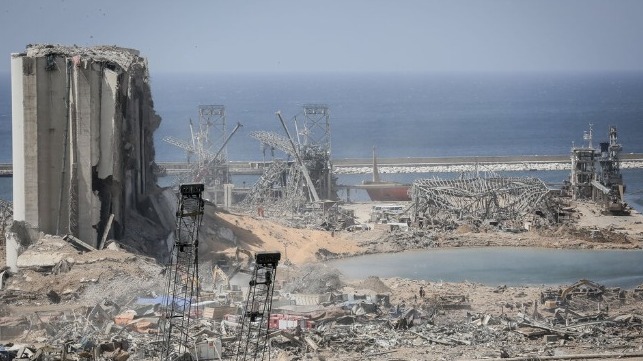CMA CGM Proposes $600M Plan to Rebuild Port of Beirut

After a huge chemical explosion left Beirut's waterfront in tatters last year, France's CMA CGM has put forth a plan for restoring the port to its former glory.
Controlled by the French Saade family, which traces its roots to Lebanon, CMA CGM has been actively involved in the port rejuvenation program since August 2020, right after the mishap. The explosion flattened much of the port as well as a large segment of the city, killing more than 200 people and injuring thousands more.
In September last year, CMA CGM outlined its plan of reconstructing the damaged docks to the Lebanese authority. Combined with port expansion and initialization plans, they estimated the total cost at $400 million to $600 million, according to Joe Dakkak, general manager for CMA CGM Lebanon.
CMA CGM says that they can run the port rehabilitation program, and complete it within three years. He added, "Our project is a realistic one because the situation is urgent. Our offer remains on the table.”
However, CMA CGM is not alone when it comes to framing potential port rehabilitation plans. German companies presented an independent multi-billion-dollar plan to rebuild Beirut’s port. Chinese shipping companies, as well as Dubai's DP World, have been eyeing the huge project too.
As for the German proposal, it amounts to a staggering $7.2 billion. It presents a bold plan of moving the port area away from the city center, and is backed by a consortium of companies including Hamburg Port Consulting and real estate company Colliers International.

that matters most
Get the latest maritime news delivered to your inbox daily.
Political turmoil in the Lebanese capital has held back progress when it comes to port rejuvenation programs. Later this month, a tender to run the container terminal is scheduled to take place, and both CMA CGM and MSC are going for the bid.
On August 4, 2020, approximately 2,750 tonnes of poorly-stored ammonium nitrate exploded in the middle-eastern seaport of Beirut. The investigation into the cause of the blast has not yet concluded, and it is an ongoing source of political controversy in Lebanon.
